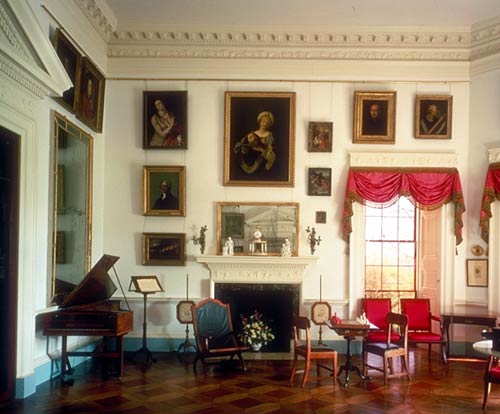The Democratic View: Locke's Social Contract
Here then are excerpts from his major work on the subject, Second Treatise of Government:
Book II
C H A P. II.
Of the State of Nature.
Sect. 4. TO understand political power right, and derive it from its original, we must consider, what state all men are naturally in, and that is, a state of perfect freedom to order their actions, and dispose of their possessions and persons, as they think fit, within the bounds of the law of nature, without asking leave, or depending upon the will of any other man. A state also of equality, wherein all the power and jurisdiction is reciprocal, no one having more than another; there being nothing more evident, than that creatures of the same species and rank, promiscuously born to all the same advantages of nature, and the use of the same faculties, should also be equal one amongst another without subordination or subjection, unless the lord and master of them all should, by any manifest declaration of his will, set one above another, and confer on him, by an evident and clear appointment, an undoubted right to dominion and sovereignty.
CHAP. VII.
Of Political or Civil Society.
Sec. 89. Where-ever therefore any number of men are so united into one society, as to quit every one his executive power of the law of nature, and to resign it to the public, there and there only is a political, or civil society. And this is done, where-ever any number of men, in the state of nature, enter into society to make one people, one body politic, under one supreme government; or else when any one joins himself to, and incorporates with any government already made: for hereby he authorizes the society, or which is all one, the legislative thereof, to make laws for him, as the public good of the society shall require; to the execution whereof, his own assistance (as to his own decrees) is due. And this puts men out of a state of nature into that of a common-wealth, by setting up a judge on earth, with authority to determine all the controversies, and redress the injuries that may happen to any member of the commonwealth; which judge is the legislative, or magistrates appointed by it. And where-ever there are any number of men, however associated, that have no such decisive power to appeal to, there they are still in the state of nature.
CHAP. VIII.
Of the Beginning of Political Societies.
Sec. 99. Whosoever therefore out of a state of nature unite into a community, must be understood to give up all the power, necessary to the ends for which they unite into society, to the majority of the community, unless they expresly agreed in any number greater than the majority. And this is done by barely agreeing to unite into one political society, which is all the compact that is, or needs be, between the individuals, that enter into, or make up a commonwealth. And thus that, which begins and actually constitutes any political society, is nothing but the consent of any number of freemen capable of a majority to unite and incorporate into such a society. And this is that, and that only, which did, or could give beginning to any lawful government in the world.
http://www.gutenberg.org/catalog/world/readfile?fk_files=28217&pageno=1




1 Comments:
Nice idea with this site its better than most of the rubbish I come across.
»
Post a Comment
<< Home